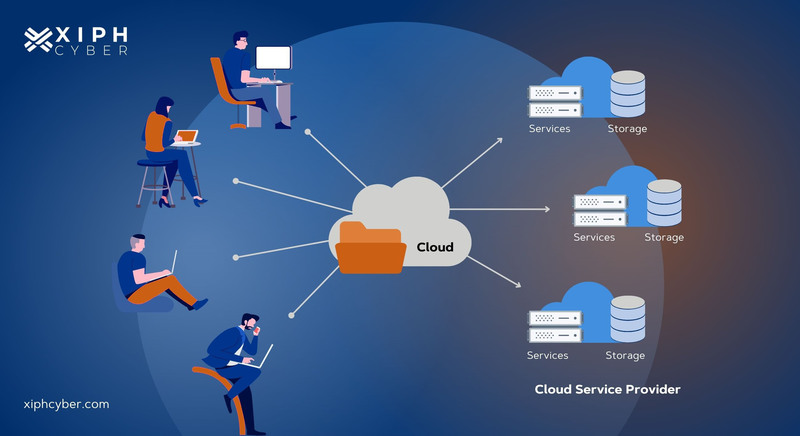Experience Smooth Integration With Universal Cloud Services
In today's interconnected digital landscape, the ability to effortlessly incorporate with global cloud solutions has ended up being a cornerstone of functional success for services across different sectors. The benefits, from expense performances to boosted performance, are obvious. Nonetheless, the true potential depend on the elaborate interaction in between these services and existing systems, using a glimpse into a future where structured workflows and flexible scalability are the norm. Exactly how does this assimilation truly unfold behind the scenes, and what are the vital considerations that underpin this transformative shift towards cloud-driven procedures?
Benefits of Universal Cloud Provider
Universal Cloud Services provide unparalleled adaptability and scalability, reinventing the means services run in the digital age. Among the primary advantages of utilizing cloud solutions is cost-efficiency. Traditional IT framework requires considerable ahead of time investments in software and hardware, in addition to ongoing maintenance costs. In comparison, cloud solutions run on a pay-as-you-go version, permitting companies to scale sources up or down based on need, ultimately reducing total expenditures.
Furthermore, cloud solutions give boosted access and cooperation opportunities - universal cloud storage. With data saved in the cloud, staff members can access information from anywhere with an internet link, promoting remote work capacities and boosting productivity. Partnership among groups is also streamlined, as cloud systems allow real-time sharing and modifying of files, fostering reliable synergy
Additionally, cloud services supply durable data security measures. Reputable cloud service carriers spend heavily in securing data centers, carrying out security protocols, and performing routine safety audits to make certain the protection of sensitive information. This level of security is usually past the reach of private services, making cloud services a dependable choice for securing information.
Features for Boosted Efficiency
In the world of cloud services, one key aspect that drives organizational effectiveness and performance is the assimilation of functions created to boost productivity. Universal cloud services supply a range of features customized to enhance and streamline operations performance within organizations. Smooth assimilation with popular productivity devices such as job management software application, consumer connection monitoring systems, and interaction platforms improves process connection and streamlines information sharing.
Integration With Existing Equipment

Assimilation with existing systems includes lining up data styles, interaction methods, security procedures, and various other technological elements to allow smooth interoperability. This process may call for the use of middleware or APIs to assist in communication between the cloud solutions and the on-premises systems. By developing robust integration mechanisms, organizations can leverage the benefits of cloud services without interrupting their established workflows.
Additionally, compatibility with existing systems not only simplifies procedures however also enhances data access and visibility across the company. Workers can access information from various resources much more successfully, causing improved decision-making and collaboration. Eventually, seamless integration with existing systems is vital for making the most of the effectiveness and efficiency of universal cloud solutions within an organization.
Scalability and Versatility Alternatives
Scalability and flexibility alternatives play an essential role in identifying the versatility and growth capacity of cloud services integration look at more info within a company. The capability to scale resources up or down based upon demand is a key function of cloud services that makes it possible for companies to successfully take care of changing workloads. Scalability ensures that organizations can quickly readjust their cloud facilities to suit changes in data storage space, refining needs, and user website traffic without experiencing downtime or performance issues.
Adaptability alternatives within cloud services offer companies with the flexibility to customize their options according to particular needs. This permits the combination of varied applications, solutions, and data sources effortlessly. By using a range of configuration selections, cloud solutions equip businesses to tailor their arrangements to align with their one-of-a-kind workflows and objectives. Furthermore, adaptability in cloud solutions makes it possible for organizations to adjust to advancing market problems and technical advancements quickly.
In significance, the scalability and adaptability choices offered by cloud services are necessary for companies seeking to maximize their procedures and achieve sustainable development in today's vibrant service setting.
Safety Procedures and Information Security
The foundation of a durable cloud solutions combination approach hinges on the application of rigid protection actions and thorough information security methods. Safety in the cloud setting is paramount to protecting sensitive details and ensuring the confidentiality, stability, and accessibility of information. To enhance protection, encryption methods are generally used to secure data both en route and at remainder within the cloud facilities. Accessibility controls, multi-factor authentication, and routine security audits are important components to stop unapproved accessibility and data violations.

Final Thought
In final thought, global cloud services provide many advantages such as cost-efficiency, enhanced availability, and robust information safety. Stringent protection actions and data security protocols make certain boosted information protection and compliance.
Respectable cloud solution suppliers spend greatly in securing information facilities, executing security methods, and performing regular safety and security audits to ensure the security of sensitive details.The foundation of a robust cloud services integration strategy exists in the application of rigid security procedures and detailed information security methods.Information security is an additional critical element that organizations have to prioritize when incorporating global cloud services. By applying robust security procedures and information defense procedures, companies can with confidence embrace the benefits of universal cloud solutions while mitigating potential dangers.